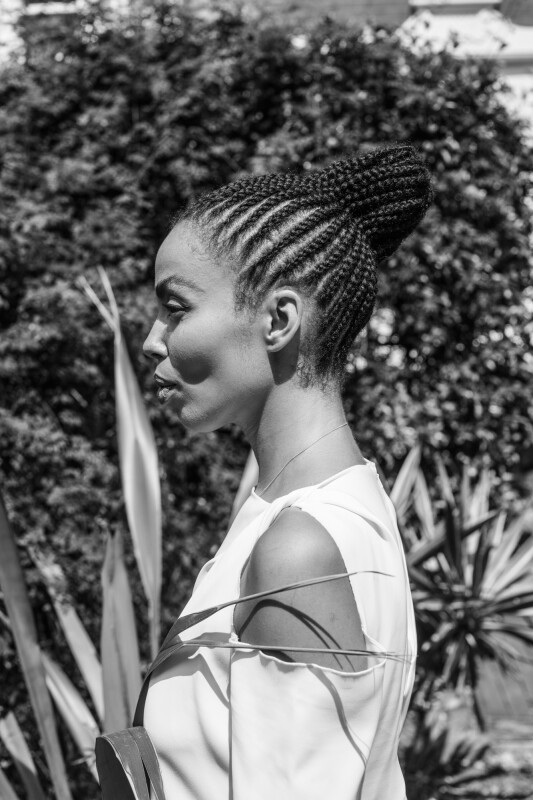Your book covers academic arguments surrounding these things and the culture surrounding these topics, but it was born from a very personal place. What was it like for you growing up in a larger white society as a person of colour?
The term person of colour is quite generic; I feel like if I’d been a person of colour who had straight hair I would have had a very different experience than somebody who was racialised as black and had extremely Afro-textured hair. My blackness and my hair texture was a very defining feature of that experience, and my hair was treated very much like it was an affliction. Certainly something to be ashamed of. I didn’t see anybody with this type of hair, so there was very much a sense of “why have I been sabotaged in this way?”
Growing up in Dublin, the expertise and the products that were required to maintain my hair were sorely absent. My Mum would bring me to the UK occasionally and I remember when I was 12 she brought me to Tottenham, and I got a Jheri curl. When I was 17 I got my hair properly relaxed in a salon and had all this weave attached for like the first time — honey blond tracks, I was overjoyed. It felt like salvation.
Mariko Finch, “Emma Dabiri on the Politics of Black Hair,” Sotheby‘s: African Modern & Contemporary Art, September 3, 2019. https://www.sothebys.com/en/articles/emma-dabiri-on-the-politics-of-black-hair.
